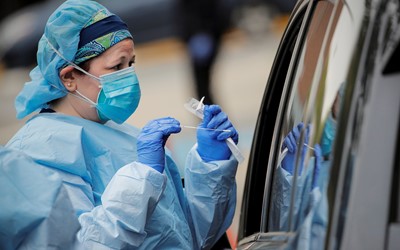Uniting clinical and academic leaders across London to evaluate changes in care
During the first wave of the COVID-19 pandemic, health and care services had to quickly innovate and adapt to provide care and protect patients and staff, and to provide health services remotely. This created an urgent need to understand whether these major changes were positive or potentially harmful. However, no system was in place to support addressing this.
In response, The London Strategic Research Health and Care Learning System was established in June 2020 and had 3 key aims:
- Evaluation Priorities: Create a list of priorities, in the form of research proposals, detailing the most significant health and care changes caused by COVID-19 in London that need further evaluation, and to inform ongoing adoption and implementation of changes across the capital.
- Learning System: Develop a learning health system that allows service delivery to be informed by research findings, and the timely capture, analysis and feedback of clinical, service and outcomes data. This helps drive continual improvements to practice, that can be applied across larger populations.
- Collaboration: Between NHS England and applied health research partners to create long-lasting partnerships, underpinning the learning system approach.
The Partnership has led to development of a network of collaboration and knowledge sharing that did not previously exist, enabling clinical and academic health leaders to collectively identify and set evaluation priorities, with the aim of rapidly translating knowledge into service provision across the regional care sector.
The Partnership is a collaboration between the three London Academic Health Science Networks (AHSNs) and the three London NIHR Applied Research Collaborations (ARCs), working with the London regional NHS clinical and transformation leads, and chaired by an NHS Chief Executive.

 START DATE AND DURATION: June 2020
START DATE AND DURATION: June 2020
 PDFs
PDFs
 Publications
Publications

